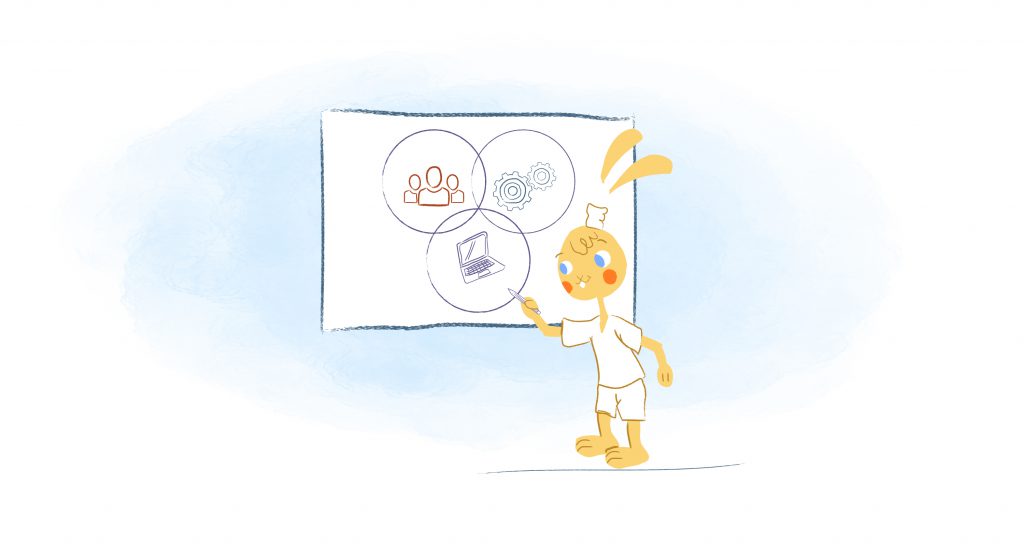The smarter tools and processes become, the more heavily companies rely on the soft skills of their employees to keep things running smoothly. There are many important soft skills that even the most technical employees need.
According to the 2018 Workplace Learning Report from LinkedIn, most respondents named training for soft skills as their top priority in 2018. Technical skills can only go so far if the people using them don’t know how to work within teams, exercise intellectual curiosity or represent the brand the right way.
During the next round of interviews, keep an eye out for candidates who demonstrate these critical soft skills:
1. Mindfulness.
As most productivity junkies know by now, multitasking does not exist. Research covered by Very Well Mind found that multitaskers are not only less productive than their mindful counterparts, but they are even worse at switching between tasks than people who do one thing at a time.
People cannot do two things at once and hope to do either of them well. Present candidate’s with scenarios that include a variety of tasks and ask them how they would handle the situation.
2. Problem-solving skills.
Anyone with the right knowledge can solve a problem. However, what happens when the person needs more information to get the right answer? People who need their hands held at work are far less valuable than people who take the initiative to work through things.
Ask candidates to demonstrate their problem-solving skills by asking open-ended questions about concrete goals during the interview process. Perkbox compiled a great list of prompts for this purpose.
3. Time management.
Procrastinators have no place in startup environments where every day is full of new and timely challenges.
- Quiz candidates about how they schedule their workloads when things get heated.
- What do they prioritize?
- What do they do when they don’t have enough time to complete everything?
Look for people who not only know how to be efficient but how to recognize which tasks are more important than others. Also, look for applicants who know how to quickly ask for and get outside help and cooperation.
4. Written and oral communication.
Even the most technical employees work with others. People who don’t know how to communicate with their coworkers inevitably delay projects and create friction within their teams. SHRM reports that miscommunications cost companies of 100 employees an average of $420,000 every year.
Ask candidates questions with multiple points and see whether they address all the issues raised. Send a follow-up email asking them to answer a few questions, then evaluate how effectively they communicate their answers back to you. You can watch for timely follow-up, as well.
5. Coachable.
No one likes a know-it-all. Look for hires who recognize their limits and are eager to learn more about how to do something better. Ask your applicants how they find out what they must know to do a job, if they don’t have the answer.
All candidates will claim to be intellectually curious. Make them prove it by asking the right questions. Drew Houston, founder of Dropbox, prompts candidates to talk about their biggest influencers in the same line of work and the lessons those candidates have learned from studying the best of the best. These applicants will begin to name names, books they have read, maybe a conference attended, someone they’ve admired, a mentor, or a former boss. You will find out some good tips for your own curiosity-seeking behaviors.
6. Positivity.
No life is easy, but a startup life really isn’t easy. Deals fall through, deadlines loom and hard work doesn’t always pay off. When that happens, the company doesn’t need a bunch of Chicken Littles yelling about how the sky is falling. It needs people who can keep the mood light without losing sight of the bigger picture.
Monster says the best candidates are enthusiastic not only about the work they do but about the people around them. Speak to candidates about challenges they have faced in the past. Listen closely to see how they talk about the people who helped them overcome the odds.
With a little training, anyone can learn to code, build or design. No amount of technical ability can overcome a lack of soft skills, though. In your next round of interviews, look for these soft skills to identify candidates who possess both the know-how and the attitude to help your company grow.


